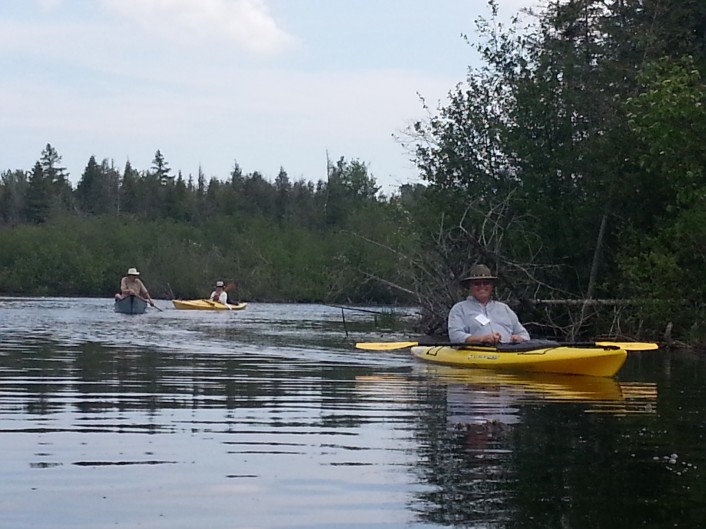On a warm spring day, a quiet stream meanders through the Carden Plain on its way to Canal Lake. Grazing cattle lazily walk down to the water for a drink. Tails lift, cow pies drop.
One cow produces about 120 pounds of manure per day, and where cattle have access to a stream, this manure can introduce pathogens harmful to both humans and aquatic life. It’s not their fault. They’re just thirsty, but in the process they trample the stream beds and banks, causing erosion and hindering the growth of vegetation. The water becomes warmer and murkier, phosphate levels rise causing algae blooms, and the potential for faecal coiforms increases.
This spring the Conservancy is starting a new project to test the water quality of creeks flowing through the Carden Plain and into Canal Lake. The project arises out of a question: Has our work to fence cattle out of streams and restore vegetation along the stream banks resulted in improved water quality? If so, can we convince even more ranchers to do the same?
We know that cattle can be destructive to waterways if not managed properly, yet cattle grazing in Carden is essential to maintaining the alvar conditions necessary for threatened and endangered grassland birds to survive. We’ve invested our heart and soul into helping these birds survive, but what would be the point if we are just creating a water quality problem for everyone else downstream?
For a decade now the Conservancy has been building fences on the properties we manage to keep cattle out of streams, and then creating alternative watering sources for cattle to access. We’ve also been helping other ranchers in the area to do the same.
Now it’s time to test our assumptions and share what we’ve learned. Working in partnership with Lakehead University, we will be training between 10 and 12 Citizen Scientists to collect water samples once per month, 8 months per year, at designated stations. Over time, we hope to collect enough data to measure the effectiveness of fencing cattle out of streams, and determine the primary sources of contamination to the waterways where cattle continue to drink from streams. If you would like to be a part of this project, we will train you to collect samples with a partner and get them to the lab. By participating you will be helping to clean up Lake Simcoe, and will get to know some of Carden’s beautiful waterways on a regular basis. Read more about this volunteer opportunity.
Please call Dorthea at (705) 326-1620 or email dorthea(at)couchconservancy.ca if you’re interested. Dorthea Hangaard is Project Manager for the Couchiching Conservancy.
We are grateful for the support of the Intact Foundation (the philanthropic arm of MacLean & Dickey Insurance) for providing the funds to kick-start this project.

